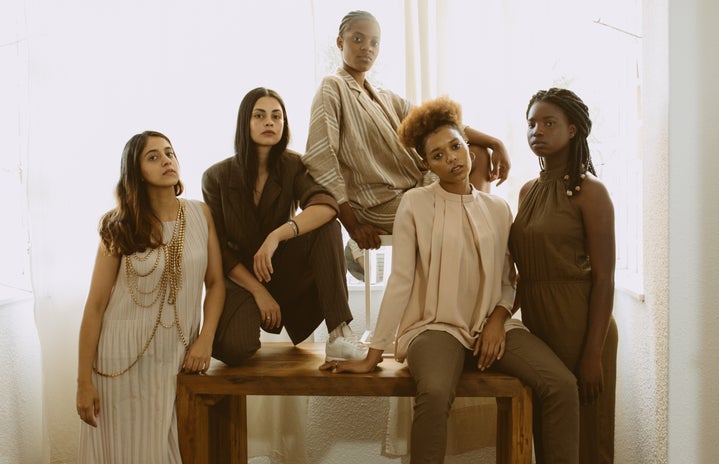The origins of Women’s History Month are a little complicated, but it all started with the United States, United Kingdom, Australia and Canada all celebrating International Women’s Day on March 8. By 1979, the movement was so popular the Education Task Force of the Sonoma County, California Commission on the Status of Women held such a large parade and celebration that Former President Jimmy Carter officially designated it the Women’s History Week. But the excitement and celebration of the achievements of women only grew in the following years. Finally, in 1987, the United States Congress passed PUB. L. 100-9, formally designating March as Women’s History Month, a time to celebrate the achievements of women and to acknowledge sexism. So what’s all the fuss about? How can you get in on the action and celebrate Women’s History Month, too?
1. Join the Florida State University Women Student Union

This month, the Women Student Union has multiple General Body Meetings and special events planned such as trivia nights, activism education presentations, “Vagina Monologues” and “Walk a Mile in Her Shoes.”
“The Walk a Mile in Her Shoes” campaign was on March 6 and encouraged women on campus to walk or jog a mile, and take a picture for Instagram to celebrate women and all the “running around” we do.
“Let’s Talk Activism” will be an event covering all of the ways you can help lobby for the rights of women with the Women’s Student Union. This event will take place on March 16.
“The Vagina Monologues” will drop March 22 and will feature personal stories of achievement, women’s health awareness and overcoming sexism presented by several different women on campus.
2. Familiarize Yourself With Current Women’s Issues
One way to do this is to research! The United Nations Women department shared this humorous, yet very serious article about current women issues as described by emojis.
These issues include:
-
Increased Violence against women and girls during COVID-19 pandemic
-
Gender-Based pay gap
-
Period poverty and menstrual cycle stigma
-
Child Marriage still exists globally
-
Women are less likely to be taken seriously by doctors when describing pain and other symptoms
3. Call Yourself a Feminist
There is a deeply flawed and skewed perspective in society that being a feminist means thinking that women are better than men. Simply calling yourself a feminist can lead toward conversation centered around gender equality and female achievement.
Being a feminist means working towards the goal of gender equality. Feminists involve themselves in activism for women’s issues. Malala Yousfazi described “feminism as just another word for equality.”
Here are a few people you may know who identify as a feminist:
-
Emma Watson
-
Ashton Kutcher
-
Taylor Swift
-
Benedict Cumberbatch
-
Dolly Parton
4. Read and Share Works by Women Authors

Women are the best people to write about the experiences of women! A great way to celebrate Women’s History Month is to read about the accomplishments of women.
Here are a few examples of books, if you want to read about the lives of influential and glass-ceiling-smashing women:
-
Becoming by Michelle Obama
-
The Secret History of Wonder Woman by Jill Lepore
-
My Own Words by Ruth Bader Ginsburg
-
Elizabeth the Queen by Sally Bedell
-
No One Is Too Small to Make a Difference by Greta Thunberg
5. Poems
There have been thousands of powerful poems written by women with the intention of empowering other women. Emily Dickinson, Maya Angelou and Sylvia Plath are just the ones that I can think of from the top of my head! The Poetry Foundation has a compiled list of poetry for you to peruse this month.
Here is my favorite poem to read for Women’s History Month: We as Women by Charlotte Perkins Gilman. It was initially published as a part of the Women’s Rights Movement and the Fight for the Right to Vote in the 1910s.
6. Documentaries
Are you more of a film fan? You’d rather watch something than read a book or a poem? Well, we have got you covered!
Netflix has an enthralling half-hour-long documentary called Period. End of a Sentence, focused on the stigma against menstrual cycles in rural India. This documentary includes the story of the ‘Pad Project,’ which was designed to bring feminine products to women and girls in need. Watching this pushes viewers to look outside of their comfort zone and understand this women’s rights issue.
Disney+ features a National Geographic documentary entitled Women of Impact: Changing the World. This historical documentary shares female stories and shows the achievements of women from the origins of the human race to today’s technological advancements. This documentary challenges gender stereotypes and encourages viewers to think of women as powerful.
7. Take the time to learn some Women’s History

There are plenty of fun facts about Women’s Suffrage and their fight to vote. However, women are making history every day. For example, this year Kamala Harris broke the glass ceiling and became the first female Vice President of the United States and Sarah Thomas became the first female to ever referee the NFL Super Bowl.
A great way you can learn about Women’s History is by attending virtual museum tours! Online exhibits allow you to take as much time as you need to enjoy documents, photographs and other primary and secondary historical sources while practicing perfect social distancing.
A couple of my favorite online Women’s History museum exhibits include the National Women’s History Museum and Because of Her Story (Smithsonian Museum).
Want to see more HCFSU? Be sure to like us on Facebook and follow us on Instagram, Twitter, TikTok, Youtube and Pinterest!



